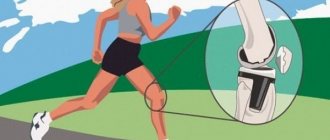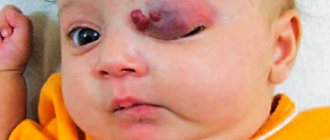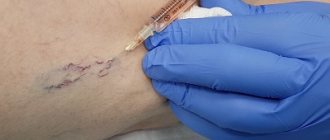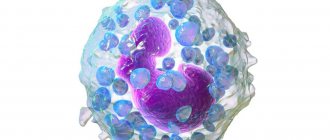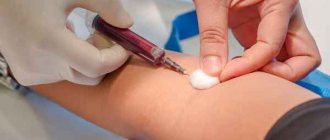Hemophobia is the fear of the sight of blood. This concept was first officially formulated by George Weinberg, a professor and psychiatrist in the USA. The name is associated with two terms - “hemo” - belonging to the blood, “phobos” - fear.
The main symptoms are:
- phobia when donating or transfusion;
- panic at the sight of wounds and scratches;
- fear of seeing violent scenes, images and films.
Phobic disorders put people, at the sight of red liquid, into a depressive state that brings hellish torment. A small drop of blood can make a person take involuntary postures and put him into a stupor. The disease is inexplicable and not understood, since there are no real reasons for its occurrence.
According to experts, blood phobia cannot be controlled and cannot be overcome due to weak willpower. Panic attacks involve reckless and stupid behavior. The patient, having reached a satisfactory state, cannot explain his behavior.
Hemophobia makes life difficult for a person and deprives him of medical procedures, such as blood transfusions, injections, surgical interventions, and going to the traumatology department. Fear constrains, and the patient does not promptly go to a medical institution for routine medical care. His inner world is filled with fear.
Causes of fear of blood
The onset of symptoms is noted in childhood. It appears much less frequently in adults. Since genetic predisposition has not been confirmed, there is an opinion that fear is transmitted from parents. This is due to the fact that they adopt the habits of adults.
Causes:
- traumatic event;
- unsuccessful surgery;
- death of a loved one;
- information from the media from the crime scene.
Overly impressionable people can become victims. One drop leads to associations of crime, death or cruelty.
The procedure for donating blood and treating a wound are postponed in some cases, as the doctor evaluates the harm and benefits in case of fear of hemophobia. One of the significant reasons for the emergence of a fear of blood is increased attention to negative experiences. “I’m afraid to donate blood from a vein” is a common phrase from patients. A person is constantly in anticipation of “bad things”, or is looking for non-existent illnesses in himself.
According to psychiatrists, the increase in the number of cases occurs during the period when abundant scenes of violence appeared on television. An anancaste person has her own opinion that an accident can happen to a person at any moment, and he bleeds to death.
Overcoming your fear, and, therefore, stopping being afraid of blood is the best medicine in treating the disease.
"Side effect"
Another factor is the side effects of medications used to treat COVID-19. For example, glucocorticosteroids (GCS) are widely used in modern anti-Covid therapy. They are often prescribed in high doses and for a fairly long period. But at the same time, GCS can cause hallucinations, delusional states, depression and even manic-depressive states and paranoia. Taking other medications used in the treatment of Covid, for example, some antiviral drugs, also has a negative impact on the psyche.
Manifestations of hemophobia in humans
Fear of blood is expressed in varying degrees. Mild forms bring less fear. As for serious medical interventions, they are carried out under the strict supervision of a doctor. In some cases, patients avoid visiting medical offices and hospitals. Because they have a fear of seeing blood or losing their own. A panic attack can begin even if the patient sees a small amount of red liquid.
Signs of an attack:
- pale skin;
- cardiopalmus;
- trembling of the arms and legs occurs;
- frequent and intermittent breathing;
- shortness of breath or suffocation;
- increased blood pressure.
Often attacks occur not so much from the sight, but from the thought and sensation of the smell of blood. Sweating, nausea and chills increase. A person cannot stand on his feet and needs a horizontal body position. The chest is filled with discomfort and compression. Often attacks are accompanied by loss of consciousness, uncontrolled behavior and unreasonable actions.
Additional Information! A person suffering from hemophobia will not be able to take adequate action in the event of an accident. He is unable to treat the wound or stop the bleeding, as he will become a victim of paralyzing fear.
Why do violations occur?
COVID-19, like any other virus, affects the functioning of many body systems and affects not only the respiratory tract and lungs, but also the central nervous system. This is called neurotropism - the ability of an infection to infect cells of this system. Moreover, researchers believe that the virus multiplies inside the nerve cells of the brain.
Autopsy results show that coronavirus leads to inflammation of brain tissue. And neuroimaging techniques that show the structure and dysfunction of the brain reveal microstrokes and leukoencephalopathy, a condition that leads to demyelination when the covering of nerve cell processes is destroyed.
These organic damages lead to the person developing mental and neurological disorders, which are complications.
How to get rid of the fear of blood
Hemophobia is difficult to cure. Only a psychiatrist can provide effective treatment if the cause is a traumatic situation. The doctor reduces the level of its significance and develops the patient’s psychological stability.
There are 3 methods used to treat fear of blood:
- psychological;
- medicinal;
- independent.
If the issue of treating hemophobia is being decided, then it interferes with a healthy life and the situation is out of control. The best method of combating the disease is considered to be frequent contact with a frightening element. An example would be interns and first-year surgeons who, as a result of practical training, get used to the sight of blood and are not afraid of it. This is real practice that really works. But psychotherapeutic methods are more reliable.
Note! Before donating blood or other traumatic situations, the patient is recommended to inform the medical staff about his illness. They, in turn, will be able to provide timely help and psychological support. Since in an emergency situation the patient will not stop thinking about blood and will not be able to respond to words.
With the help of psychotherapy
An effective method in the fight against homophobia is CBT (cognitive behavioral therapy). The patient tunes in to a positive wave, under the guidance of a psychotherapist. Gradually develops and consolidates an attitude to overcome fear. The procedures include meditation and breathing exercises. They help the patient calm down before and after blood is taken.
Situational anxiety is relieved through relaxation. Resistance to a frightening object is developed through the use of special psychotherapeutic techniques. According to experts, this method activates the mechanism that is responsible for adaptation and causes addiction to the type of frightening factor, and blocks the feeling of fear. Psychoanalysis and hypnosis are also used.
Hypnosis can really help a patient develop adequate reactions to the sight of blood. The process is aimed at developing skills to manage emotions in a stressful situation. Hypnosuggestive treatment develops complete psychological stability. A person is not afraid of blood or its signs.
Hypnosis is considered the most effective treatment technique. Eliminates the causes and symptoms of fear. Numerous scientific researches and successes have been achieved with positive results thanks to hypnosis. Severe cases require medication intervention. The dosage is selected by the attending physician.
If you suffer from such an ailment as fear of blood, on our website you can answer for yourself the reasons for its occurrence. A home environment, silence and comfort contribute to a better disclosure of spiritual impulses to oneself. Virtual communication with professional psychologists will help you set priorities in life and it will become clear how to act in situations related to blood phobia.
Medication
Medicines begin to fight the disease if the disease progresses and becomes the development of other mental disorders.
In this case, the following is prescribed:
- antidepressants;
- tranquilizers;
- sedatives;
- sleeping pills.
Pharmaceutical drugs stabilize the psycho-emotional status and eliminate nervous tension. This treatment is carried out in short courses and is prescribed for severe sympathoadrenal crises.
Important!
You should not use or prescribe medications yourself. You should consult a doctor. Since all of the above drugs have contraindications.
On one's own
Often, patients are interested in how to stop being afraid of blood without drug intervention. In the treatment of hemophobia, self-medication is practiced. This method is meditation. A system of self-development and self-knowledge.
Has the following qualities:
- strengthens well-being;
- normalizes mental state;
- improves physical health.
A person conducting meditation sessions withdraws from the outside world for a while and concentrates his thinking on his problem. Most importantly, the patient will be able to do this himself. By repeating the same installation for several weeks, you can get rid of the problem. For example, a mantra with the words “I am not afraid of blood” will take root in the subconscious, and over time, healing will occur.
First aid for a hemophobe
You can meet a hemophobe anywhere:
- in a hospital or clinic;
- he may be among the medical students undergoing internship;
- on the street, during emergencies;
- at the table, at a party or in a restaurant (a hematophobe mistakes a juice stain for blood and gets scared).
If you are dealing with a person who is exhibiting anxiety and fear, reassure them and try to distract them from anxious thoughts. Distract him by giving him a glass of water. You can take his hand and stay next to him until the fear recedes. When a hemophobe faints, unbutton his shirt or blouse, splash his face with cold water, and bring him to his senses. If an emergency occurs in a medical facility, carefully apply a cotton swab containing ammonia to the victim’s nose.
You cannot laugh at a person and joke about his condition. The fear that hemophobes experience can even cause cardiac arrest in severe cases. The main thing is to remain calm and stay close. As with panic attacks, the attack can go away as quickly as it came.
On a note!
When the patient comes to his senses, you can gently advise him to see a psychotherapist.
Cancer and cancerophobia
Cancer
- one of the severe forms of cancer. It has a malignant course and a poor prognosis if the disease is detected late. One of the leading causes of death in old age. According to statistics, the incidence of oncological diseases and cancer in particular in people suffering from cancerophobia is several times lower than in the general population.
This can be explained by several reasons
Firstly, people prone to phobias are usually physically healthy people and therefore diseases of internal organs are observed less frequently in them.
Secondly, due to fear for their health, they are distinguished by frequent (more than necessary) visits to doctors, examinations and tests, and therefore all their existing diseases are detected at an early stage, which allows for timely application of medical measures.
Thirdly, carcinophobes, due to their tendency to causeless anxiety, have well-developed vegetative centers that promote good capillary blood flow and, accordingly, high endurance of the body, which also determines good physical health.
How to protect yourself from cancer?
The most universal and proven method is medical examination. Regular and preventive observation by a doctor allows you to identify any disease in the early stages, cancer - at the stage of a precancerous condition. When the disease is just beginning, it is easier to cope with it.
For cancer patients, this rule becomes an obsession. They are ready, on their own initiative, to take tests for tumor markers (blood indicators indicating cancer) an infinite number of times, undergo examinations and consultations with oncologists.
How to get rid of the fear of getting cancer?
In mild cases, a consultation with a doctor is sufficient, at which it is enough to convince the patient that he does not have cancer or even a predisposition to it. It is very important if the doctor points out high anxiety and teaches how to cope with this anxiety.
Treatment of cancerophobia
In more severe and long-lasting cases of cancerophobia, dissuading oneself is not enough. Treatment required. The first step is a consultation with a psychotherapist or psychiatrist. During the consultation, the doctor will clarify the condition and, if necessary, prescribe therapy. The following techniques are recommended that have a therapeutic effect for obsessive fear of getting cancer:
- Psychotherapy. The most effective are cognitive-behavioral and psychodynamic directions. The former teach you how to manage your anxiety, the latter help you get rid of your phobia by identifying the unconscious causes of fear.
- Biofeedback therapy. Advanced technology that combines elements of psychotherapy and computer technology. Helps reduce anxiety and fear-related thinking disorders.
- Pharmacotherapy. Some antidepressants and antipsychotics have an antiphobic effect and are used in courses. Tranquilizers can quickly relieve symptoms of fear and panic.
- Physiotherapy: electro-sleep, electro-analgesia. By reducing overexcitation of the subcortical structures of the brain, it reduces the severity of anxiety.
About hypochondria (excessive concern for one's health), which often accompanies cancerophobia, see HERE. You can read about other phobias HERE.




